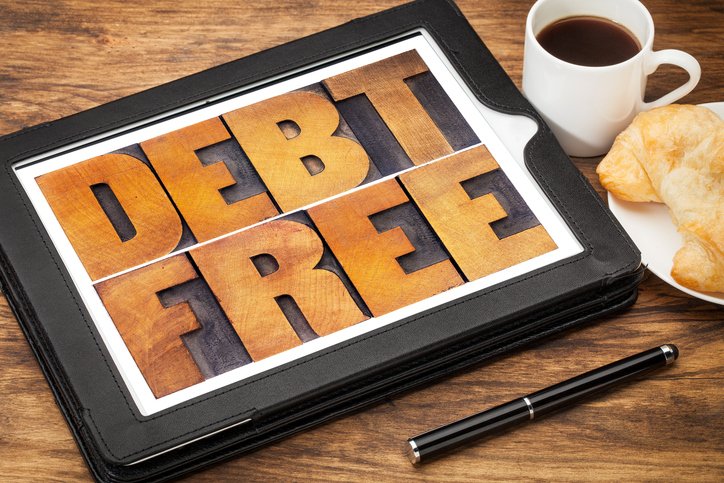Navigating the complex world of debt consolidation vs bankruptcy can be overwhelming, especially when faced with choices like debt consolidation and bankruptcy.
Both options have their own unique processes, benefits, and drawbacks. This guide breaks down what debt consolidation is, how it works, and the types of debt that can be consolidated.
It also explores bankruptcy, its various forms, and how each choice impacts your credit score. Alternatives to consider are discussed as well.
Whether seeking relief or trying to understand your options, this guide provides insights to help make informed financial decisions.

Key Takeaways:
- Debt consolidation combines multiple debts into one payment, potentially lowering interest rates and simplifying payments.
- Bankruptcy is a legal process that allows individuals or businesses to eliminate or restructure their debts.
- Factors to consider when deciding between debt consolidation and bankruptcy include financial situation, debt amount, and credit score.
What Is Debt Consolidation?
Debt consolidation is a financial strategy that combines multiple debts into a single loan, making it easier to manage your monthly payments and potentially lowering your interest rates. This process can include various forms, such as personal loans, home equity loans, or credit counseling services designed to assist individuals struggling with unsecured debt. By consolidating debts, consumers aim to improve their credit score over time and alleviate financial problems caused by overwhelming obligations from multiple creditors.
How Does Debt Consolidation Work?
Debt consolidation works by allowing individuals to combine their various debts into a single loan or payment plan, which simplifies their repayment process and can lead to lower interest rates and reduced monthly payments.
This approach can significantly ease financial stress, as managing multiple debts becomes more straightforward. Individuals seeking to consolidate must first assess their financial situation, including outstanding debts and interest rates, to determine the best course of action.
- Obtaining a loan: This often involves applying for a personal loan or line of credit from a bank or credit union, where lenders will review the borrower’s credit report and financial history to establish eligibility.
- Credit reports: These documents play a crucial role in the consolidation process; they help lenders evaluate the borrower’s creditworthiness, influencing the interest rates and terms they can offer.
- Repayment plans: A well-structured repayment plan is vital, as it sets clear expectations for regular payments and ensures that debts are paid off systematically.
For example, someone with multiple credit card debts might opt for a balance transfer credit card that offers a 0% introductory rate, allowing them to pay off their debts without accruing interest. Alternatively, obtaining a debt consolidation loan may provide a fixed payment plan, which can be easier to manage.
Successful consolidation can lead to a healthier financial outlook, improving credit scores over time.
What Types of Debt Can Be Consolidated?
Various types of debt can be consolidated, including unsecured debt like credit card debt and personal loans, as well as secured loans that involve collateral, allowing individuals to manage their financial problems more effectively.
Debt consolidation encompasses several categories, providing a pathway for debtors to regain control. For instance, unsecured debts typically include medical bills, student loans, and retail store cards, which do not require any collateral and are often characterized by higher interest rates. On the other hand, secured debts involve loans backed by assets, such as mortgages or auto loans, where failure to pay could lead to asset seizure.
By consolidating these debts, one can potentially lower monthly payments, simplify billing, and improve their credit score over time. Clear strategies for managing these different types of debt not only reduce financial stress but also pave the way for greater financial stability, allowing for informed budgeting and planning for the future.
- Unsecured Debt Examples:
- Credit card balances
- Personal loans
- Medical bills
- Secured Debt Examples:
- Mortgage loans
- Auto loans
What Are the Pros and Cons of Debt Consolidation?
Debt consolidation presents a range of pros and cons that consumers should carefully evaluate before proceeding, highlighting both the potential benefits of financial options and the risks associated with new obligations.
Pros:
One of the primary advantages of debt consolidation is the potential for lower interest rates, which can drastically reduce monthly payments and provide significant financial relief for individuals struggling with multiple obligations.
When individuals choose to consolidate their debts, they often find themselves facing a much more manageable financial landscape. The reduced interest rates associated with debt consolidation can lead to substantial savings over time, making it easier to meet monthly obligations without feeling overwhelmed. Borrowers can experience the benefit of a simplified payment process; rather than juggling several payments each month, they only need to focus on a single monthly installment.
- Improved budgeting: With one payment, tracking expenses becomes less daunting.
- Potential credit score enhancement: Timely payments on consolidated loans can positively impact credit history.
- Stress reduction: A simplified debt management approach can lead to decreased anxiety related to finances.
Ultimately, opting for debt consolidation not only aids in easing immediate financial pressure but also lays a path toward long-term stability.
Cons:
Despite its advantages, debt consolidation also comes with several cons, including potential fees associated with the consolidation process and the risk of falling back into financial problems if new obligations are not managed properly.
When individuals consider this financial strategy, they may overlook various hidden costs, which can include application fees, annual fees, and even penalties for early repayment. Such expenses can significantly diminish the intended benefits of consolidating debt.
If this process is not executed with careful planning and a strong commitment to budgeting, there’s a danger of accruing additional debt.
- For instance, if someone consolidates their debts but continues to rely on credit, they may inadvertently boost their total debt burden.
- This cycle can lead to greater financial strain over time, making it increasingly challenging to achieve long-term stability.
Ultimately, it’s crucial to examine both the immediate and lasting impacts of these decisions on overall financial health.
What Is Bankruptcy?
Bankruptcy is a legal process that provides individuals with financial relief by discharging some or all of their debts, allowing them to make a fresh start. There are different types of bankruptcy, including Chapter 7 and Chapter 13, which offer various paths to managing financial obligations and protecting assets. This legal approach aims to help consumers navigate overwhelming debt situations through structured plans and regulations set forth by bankruptcy law.
What Are the Different Types of Bankruptcy?
There are primarily two types of bankruptcy for individuals: Chapter 7, which involves liquidation of nonexempt assets to pay creditors, and Chapter 13, which entails a repayment plan allowing debtors to keep their assets while repaying their debts over time. This crucial distinction is important, as it directly affects how individuals can navigate their financial hardships, choosing between immediate relief or a structured repayment strategy that promotes long-term stability.
When considering these two options, understanding their respective processes, benefits, and implications is essential for anyone looking to find financial relief.
Chapter 7 bankruptcy is often described as a fresh start, where most unsecured debts can be discharged after the liquidation of assets. In contrast, Chapter 13 bankruptcy allows individuals to propose a repayment plan lasting three to five years, enabling them to retain their property while managing their obligations.
Here’s a brief comparison of the two options:
- Eligibility: Chapter 7 has income eligibility criteria, while Chapter 13 requires a steady income and a debt limit.
- Duration: Chapter 7 is relatively quick, often completed in a few months, whereas Chapter 13 extends over several years.
- Asset retention: Chapter 7 may result in the loss of assets, while Chapter 13 typically allows individuals to keep their property.
Each route offers different paths to achieving financial freedom, particularly in dealing with various types of debts that may be discharged.
How Does Bankruptcy Work?
Bankruptcy works through a legal process where individuals submit a petition to the court, outlining their financial situation and debts, which then initiates either a Chapter 7 liquidation or Chapter 13 repayment plan based on their eligibility and financial goals.
This process is vital for those who are overwhelmed with financial burdens. First, the individual gathers necessary documents detailing all debts, income, and assets, ensuring accuracy to avoid complications later.
Once the petition is filed, the court schedules a meeting of creditors, where the debtor must explain their financial situation under oath.
- The bankruptcy court plays a crucial role, overseeing the entire procedure and ensuring compliance with laws.
- Creditors are notified through a formal notice, allowing them to participate in the proceedings and potentially recover some of their owed debts.
For individuals, the consequences of filing can be significant, affecting credit scores and financial standings, yet it can also provide a pathway to regain financial stability, offering relief from harassing collections and a fresh start.
What Are the Pros and Cons of Bankruptcy?
Bankruptcy can offer significant financial relief, but it also comes with pros and cons that individuals must consider, including the long-lasting impact on their credit score and the legal obligations involved in the process.
For many, navigating the complexities of financial hardship can be overwhelming, and understanding the full scope of options is essential. One major advantage of bankruptcy is the potential for debt discharge, which allows individuals to eliminate or reduce their liabilities, providing a fresh start. This can lead to increased peace of mind and the opportunity to reorganize personal finances.
- Financial Relief: It acts as a shield against aggressive creditors, often halting collections and lawsuits.
- Fresh Start: After bankruptcy, individuals often find that they have a clearer path to rebuilding their financial situation.
It’s crucial to weigh these benefits against potential downsides, such as a negative impact on credit scores that can linger for years. There is the possibility of losing assets, particularly in Chapter 7 bankruptcy, where non-exempt property can be liquidated to pay debts. The decision to file should be made with careful consideration of both current circumstances and long-term implications.
Pros:
The major pro of filing for bankruptcy is the significant financial relief it provides, allowing individuals to discharge certain debts and achieve a fresh start free from overwhelming financial burdens.
By choosing to file for bankruptcy, a person can relieve themselves from the pressures of managing insurmountable debt that often leads to anxiety and stress. This process enables individuals to discharge qualifying debts, which can include credit card balances, personal loans, and medical bills. As a result, they can focus on rebuilding their financial standing and re-establishing creditworthiness over time.
Consider scenarios where bankruptcy is particularly beneficial:
- Individuals who have accumulated significant medical expenses due to unforeseen health issues.
- People facing job loss that has resulted in missed payments and growing debt.
- Those dealing with overwhelming credit card debts that exceed their means to manage effectively.
In these cases, bankruptcy can serve as a lifeline, offering a structured path towards recovery while simultaneously resetting financial priorities.
Cons:
On the downside, bankruptcy can severely impact an individual’s credit score and comes with long-lasting implications that can affect future financial opportunities and obligations.
Filing for bankruptcy may seem like a way out of dire financial straits, but it brings with it a multitude of challenges. The repercussions on one’s credit score can be harsh, often dropping it by as much as 200 points. This decline not only restricts access to credit cards and loans, but can also influence employment prospects since some employers check credit history during the hiring process.
Additionally, individuals who file for bankruptcy are still subject to certain legal obligations. For instance, they must continue to pay child support or alimony, and remain liable for student loans and tax debts. Even after bankruptcy is filed, it typically remains on one’s credit report for up to ten years, marking a significant barrier when pursuing financial endeavors such as securing a mortgage or starting a business.
- The potential stigma of bankruptcy can linger socially and professionally.
- High-interest rates may be the consequence when accessing credit post-bankruptcy.
- The limitations imposed might lead to restricted options in investment opportunities.
Which Option Is Best for Me?
Choosing between debt consolidation and bankruptcy can be a challenging decision that depends on an individual’s unique financial situation, including the type of debts owed, total obligations, and long-term financial goals.
Factors to Consider:
When evaluating whether to pursue debt consolidation or bankruptcy, several factors should be considered, such as total debt amount, type of debt, income, and the impact each option has on credit scores and future financial opportunities.
It is crucial to assess current financial obligations, which can significantly influence one’s ability to manage existing debts.
For example, high monthly payments on loans, mortgages, or credit cards may constrain finances, limiting options for debt management.
- Credit Scores: These numbers reflect an individual’s creditworthiness, impacting interest rates and the possibility of obtaining new credit.
- Personal Circumstances: Each person’s unique situation, including job stability, medical expenses, and family obligations, should factor into the decision-making process.
Ultimately, weighing all these elements can help individuals find the most suitable route for financial recovery and stability.
Expert Opinion:
Seeking expert opinion from financial advisors or credit counselors can provide valuable insights into whether debt consolidation or bankruptcy is the more suitable option based on an individual’s specific financial situation.
Understanding the intricacies of debt consolidation and bankruptcy is crucial for anyone facing financial challenges. Individuals often feel overwhelmed by the variety of available options, which can make decision-making daunting.
By turning to professionals, one can effectively assess the pros and cons of each route without succumbing to stress. These experts enable consumers to grasp the implications of their choices by offering tailored advice based on their unique circumstances.
- They can help create a manageable budget.
- Assist in evaluating current debts.
- Provide insights on long-term financial health.
With the guidance of credit counseling services, individuals can navigate complex financial landscapes, ensuring that they make informed decisions about debt consolidation vs bankruptcy that align with their goals and future aspirations.

How Does Debt Consolidation Affect Credit Score?
Debt consolidation can have both positive and negative effects on an individual’s credit score, depending on how the consolidation is handled and the overall financial situation of the debtor.
Understanding the nuances of debt consolidation is crucial for anyone considering this option. For instance, when individuals pursue debt consolidation, lenders often perform a hard credit inquiry, which may temporarily lower the credit score. If managed correctly, the overall impact can be mitigated.
Maintaining a consistent payment history is vital; timely payments can significantly improve the score over time. Reducing credit utilization—by paying off credit card balances through consolidation—can enhance creditworthiness.
Here are key factors to consider post-consolidation:
- Monitor credit reports regularly to identify any discrepancies.
- Keep old accounts open to maintain credit history length.
- Avoid taking on new debt until the consolidation loans are managed.
By strategically managing finances, individuals can not only protect but potentially enhance their credit scores in the long run.
How Does Bankruptcy Affect Credit Score?
Filing for bankruptcy can significantly impact an individual’s credit score, often resulting in a substantial drop that can affect future financial opportunities for years to come. The repercussions of this decision can vary based on the type of bankruptcy filed—Chapter 7 or Chapter 13—each presenting unique paths for recovery and obligations that persist post-filing.
In many cases, credit scores can decrease by 100 points or more, depending on the individual’s financial history prior to bankruptcy. Recovery from this setback typically takes several years, as credit scores may begin to improve approximately three to five years after the bankruptcy discharge. It is essential to understand that even after filing for bankruptcy, certain financial responsibilities remain, such as:
- Continuing to pay for any secured debts, like mortgages and car loans.
- Adhering to the repayment plan outlined in a Chapter 13 bankruptcy.
- Being mindful of new credit applications, as lenders may view the bankruptcy as a red flag.
It’s crucial for individuals to actively engage in rebuilding their credit by making timely payments, monitoring their credit report, and possibly obtaining secured credit cards. Ultimately, while the legal process of bankruptcy can have long-lasting implications, there are avenues available for improving one’s financial health over time.
What Are the Alternatives to Debt Consolidation and Bankruptcy?
There are several alternatives to debt consolidation and bankruptcy that individuals can consider, such as debt management plans, debt settlement, and credit counseling, each offering unique financial options to help manage obligations effectively.
Debt Management Plan
A debt management plan (DMP) is a structured repayment strategy designed to help individuals pay off their debts through manageable monthly payments, often facilitated by credit counseling services to negotiate with creditors.
This approach typically begins with an assessment of an individual’s financial situation, allowing credit counselors to create a personalized plan that outlines how much will be paid each month towards outstanding debts. By consolidating payments to various creditors into a single monthly amount, a DMP simplifies the repayment process and can significantly reduce the stress often associated with managing multiple debts.
As a result, individuals may also benefit from lower interest rates and waived fees as creditors are often more willing to cooperate in these arrangements.
- Benefits include improved credit scores over time, as payments are made consistently, and a clearer path towards financial stability.
- Pitfalls may arise if payments are missed, which could lead to the reinstatement of original debt terms, including higher interest rates.
The successful implementation of a DMP can lead to a more organized financial life, enableing individuals to regain control over their finances while working towards becoming debt-free.
Debt Settlement
Debt settlement is a financial option where individuals negotiate with creditors to settle their debts for a reduced amount, often leading to significant savings but also potential impacts on credit scores.
During the debt settlement process, a debtor typically engages in discussions with creditors, aiming to persuade them to accept less than the full amount owed. This negotiation can involve outlining personal financial situations or emphasizing hardships that make repayment difficult. Strategies such as offering lump-sum payments or highlighting the costs of pursuing further collection actions can be effective tactics.
While many have successfully reduced their debt obligations, it’s important to be mindful of the
- potential savings that can often reach up to 50% of the original debt
- the adverse impact it may have on credit scores, which can linger for years
- and the possibility of tax implications on forgiven amounts.
Ultimately, while debt settlement can provide relief and a pathway to financial recovery, it’s essential to weigh these factors against the long-term effects on creditworthiness and future opportunities for borrowing.
Credit Counseling
Credit counseling is a service that offers financial advice and support to individuals facing debt challenges, helping them explore their financial options and develop debt management strategies.
In an increasingly complex financial landscape, understanding one’s financial health can be daunting. Credit counseling serves as a beacon of hope for those overwhelmed by the burden of debt. These services not only provide sound advice but also assist individuals in understanding their rights and responsibilities concerning creditors.
- With personalized financial assessments, clients gain clarity on their situation.
- They receive recommendations for budgeting effectively, prioritizing debts, and establishing emergency funds.
- Certified counselors impart knowledge about managing credit scores, ensuring individual enablement.
By seeking professional guidance, individuals can experience significant reductions in stress, increased confidence in their financial decisions, and access to invaluable resources designed to pave the way towards economic stability.
Frequently Asked Questions about Debt Consolidation vs Bankruptcy
What is debt consolidation?
Debt consolidation is the process of combining multiple debts into one single loan, usually with a lower interest rate and a longer repayment period.
What is bankruptcy?
Bankruptcy is a legal process that allows individuals or businesses to eliminate or restructure their debts when they are unable to pay them back.
Which one is better for me: debt consolidation or bankruptcy?
It depends on your financial situation. If you have a steady income and can afford to make monthly payments, debt consolidation may be a better option. However, if you have a significant amount of debt with no realistic way to pay it back, bankruptcy may be the better choice.
What are the advantages of debt consolidation?
Debt consolidation can help simplify your finances by combining multiple debts into one payment. It can also lower your interest rate and monthly payment, making it more manageable.
What are the advantages of bankruptcy?
Bankruptcy can provide a fresh start by eliminating or restructuring your debts. It also puts an immediate stop to collection efforts by creditors, giving you some relief from financial stress.
Is debt consolidation or bankruptcy a better option for my credit score?
Neither option is particularly beneficial for your credit score. Debt consolidation may have a slightly less negative impact, as you are still making payments on your debts. Bankruptcy, on the other hand, can have a significant negative impact on your credit score, but it also allows you to start rebuilding your credit sooner.
==> Our #1 Recommendation To Help You Get Out Of Debt <==





